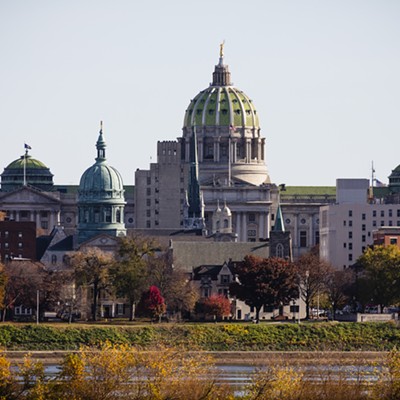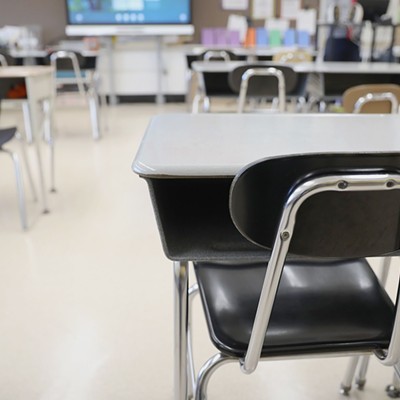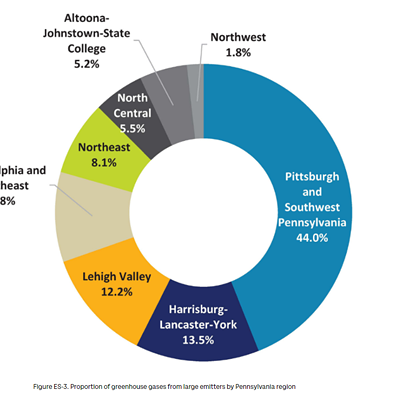The high court issued its per curiam order vacating the mandate shorty after 3:30 p.m. on Dec.10. It did not include an opinion, but said one would be forthcoming. Justice Thomas Saylor, who was elected as a Republican and is retiring at year’s end, did not participate in the decision. In November, Wolf said that Pennsylvania public schools would be able to alter or terminate the mask mandates beginning Jan. 17, 2022. But with the court's ruling, schools can terminate or alter mandates immediately.
In a statement, Senate President Pro Tempore Jake Corman (R-Centre), who was among those who challenged the mandate, called the high court’s ruling “a victory for parents and communities whose opinions have been ignored by the Wolf Administration for far too long. I have said all along that parents and school boards are in the best position to respond to COVID-19 and keep our kids safe. I am grateful the Supreme Court agreed with this position and rejected Governor Wolf’s effort to take power away from the people. ”HARRISBURG, Pa. (@AP) _ Pennsylvania schoolchildren may soon be attending classes unmasked under a state Supreme Court ruling Friday that threw out the Wolf administration's statewide mandate that face coverings be worn inside K-12 school buildings.
— Marc Levy (@timelywriter) December 10, 2021
He continued: “The ruling [Friday]today is about much more than masks in schools; it is about preventing government overreach in general. The law clearly does not give any governor or any state agency the power to create orders out of thin air in the absence of an emergency declaration and outside the regulatory review process.
“This ruling means we will not have to deal with even more extreme, unilateral measures from the Wolf Administration that devastated our economy last year, including business closures and restrictions,” Corman said.
During oral arguments on Dec. 8, a lawyer for the administration asked the justice to throw out a lower court’s ruling that acting state Health Secretary Allison Beam lacked the authority to impose a mandate. Senior Deputy Attorney General Sean Kirkpatrick, who represented Beam and the state, argued that whoever holds the appointed office has the power to implement “efficient and practical” means to prevent a disease’s spread.
“The General Assembly created the Department of Health to protect the health of the people of the commonwealth by determining and employing the most efficient and practical means for the prevention and suppression of disease,” he argued, citing the 1905 act that established the department and 1929 administrative code.
In August, Beam and Wolf said rising COVID-19 cases and a desire to keep kids in the classroom justified the directive — a measure they said was allowed under the administrative code and a 1955 law on infectious disease control.
The order, which had been in effect since Sept. 7, applies to all students, teachers, and staff at K-12 schools and child care providers, regardless of one’s vaccination status.
At the time, some of Pennsylvania’s 500 school districts had already reopened for the 2021-22 academic year. Most districts were without a mandatory masking policy, and more than 5,000 students had tested positive for the coronavirus.
Thomas Breth, a lawyer who represents the challengers to the mandate, including Corman and state Rep. Jesse Topper (R-Bedford), argued that Beam should have gone through the regulatory process before enacting a mandate.
The Disease Prevention and Control Act is “not ambiguous; it’s clear,” Breth said, arguing that there has to be an “existing regulation.”
“Nowhere in the order does it talk about modified quarantine — never mentioned,” he said earlier this week, arguing that attorneys for the health secretary never mentioned the topic in its Commonwealth Court briefing. “They dipped their toe if you would, in oral argument into the modified.”
Writing on Twitter, Kevin Levy, a Philadelphia attorney who has tracked the administration’s policies said he had “suggested over the last year that the longer that the pandemic goes on, and the longer state executive branch officials keep issuing unilateral orders, state and federal judges will become less and less deferential to emergency orders.
“If executives want to issue unilateral orders and bypass legislatures, they’ll need to be increasingly careful to comply with exacting administrative procedural rules,” Levy continued. “Compare initial cases on [the Centers for Disease Control & Prevention’s] Eviction Moratorium and final ones that threw it out.”
John L. Micek is the Editor-in-Chief of the Pennsylvania Capital-Star, where this story first appeared. Capital-Star reporter Marley Parish contributed to this story.



















